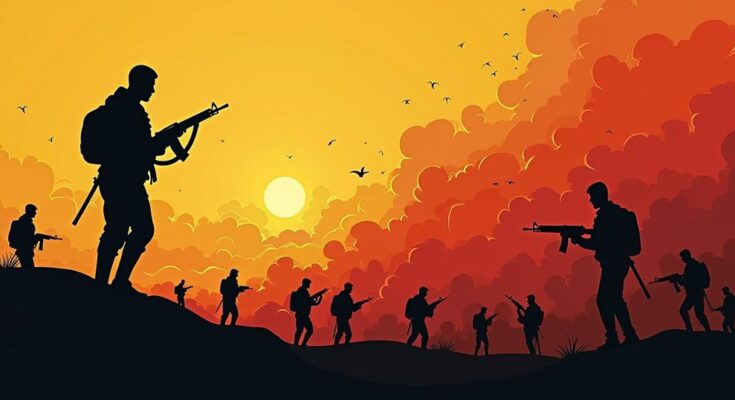The Israel-Hezbollah-Hamas-Iran conflict represents a critical axis in the post-post-Cold War landscape, defined by a struggle between the coalition of inclusion and the coalition of resistance. The success of Israeli normalization efforts with Saudi Arabia poses a significant threat to Iran and its proxies, further underscoring the geopolitical stakes involved in these ongoing conflicts.
To comprehend the implications of Israel’s recent military actions against Hezbollah within the broader geopolitical landscape, it is critical to analyze these developments against the backdrop of a new international dynamic that has emerged following the Cold War. The escalation of violence in the Middle East and Ukraine signifies a fundamental shift towards what can be termed as the post-post-Cold War era. This conflict is characterized by two contrasting alliances: the “coalition of inclusion,” which encompasses nations advocating for closer economic integration and collaborative approaches to global issues like climate change, often under U.S. leadership, and the “coalition of resistance” led by antagonistic powers such as Russia, Iran, and North Korea that promote authoritarian governance and militarism to sustain their authority. The events unfolding in Gaza and Ukraine must be contextualized within this framework of opposing global ideologies. For instance, Ukraine’s quest for integration into the European Union is seen as a direct affront to Russia’s sphere of influence. Concurrently, Israel, along with nations like Saudi Arabia, has been pursuing normalization of relations to fortify the coalition of inclusion in the Middle East. Should these efforts succeed, it would isolate Iran and its militant affiliates, including Hezbollah, the Houthis, and pro-Iranian groups in Iraq, thereby bringing about a significant geopolitical transformation in the region. Moreover, if Israel successfully consolidates its ties with Saudi Arabia, it would not only expand the coalition of inclusion but also pose a severe threat to Iranian interests, making the actions of Hamas and Hezbollah even more significant. The preventive measures taken by these groups against such normalization underscore their critical role in the ongoing geopolitical battles taking place around the globe, extending far beyond their immediate regional implications.
The article discusses the complex geopolitical ramifications of the Israel-Hezbollah-Hamas-Iran conflict within the context of current international relations, highlighting the shift from the Cold War era to what the author refers to as the post-post-Cold War period. The analysis contrasts the emerging coalition of inclusion, favoring U.S.-led global collaboration, with the coalition of resistance composed of authoritarian regimes opposed to this vision. This framework serves to elucidate the motivations behind various state actions and conflicts in recent history, particularly in regards to the Middle East and Eastern Europe.
In conclusion, the Israel-Hezbollah-Hamas-Iran conflict must be understood as part of a larger international struggle between two ideological coalitions. While the coalition of inclusion seeks to foster global cooperation and integration, the coalition of resistance strives to maintain its authoritarian grip through opposition to these efforts. The outcome of this struggle will not only shape the future of specific regions but will have far-reaching implications for global politics as a whole.
Original Source: www.nytimes.com




